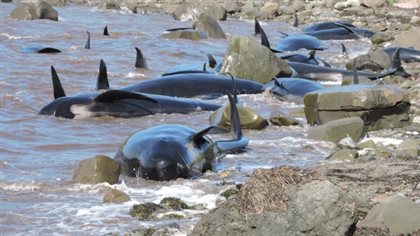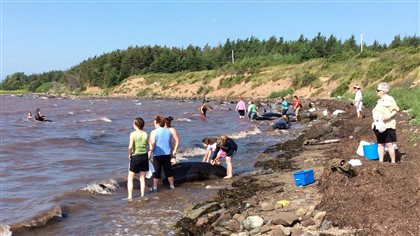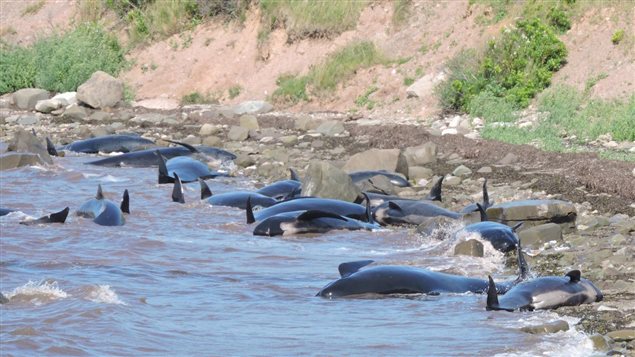The 700 people of Judique, Nova Scotia live amidst the staggering beauty of Cape Breton Island’s west coast, hard by the waters of St. George’s Bay in the Gulf of St. Lawrence. It’s an area some believe is the most beautiful place in Canada.

Like many residents of the Maritime provinces, they farm and fish, work in forestry, lumbering and cultural industries or own small businesses.
The people of Cape Breton Island are down-to-earth, tough and generous of spirit.
We found that out–again–on Tuesday when the people of Judique stared down what had the makings of a natural calamity.
Sixteen whales in pursuit of food found themselves trapped–beached at McKays Point off Shore Road with no tide to carry them back to sea.
The pod ranged in size, from a baby that was less than a metre long, to adults that were up to three-and-a-half metres in length.
The whales were in obvious trouble. Judique responded.
Quickly, about a dozen people gathered. That number soon doubled.

At first, the rescuers poured buckets of water over the pod. But a rough surf was keeping the whales wet, so the rescuers set themselves another task: the whales needed to kept upright to keep their blowholes uncovered to avoid drowning.
The required energy was mustered. For the next four hours, the required energy was mustered, forcing some rescuers into water up to their necks.
As the tide moved back in, ten of the whales made it to the safety of deeper water. Six died.
Linden MacIntyre grew grew up in the Judique area. He left Cape Breton Island and rose in prominence in Canada as an award-winning investigative journalist at the CBC. He is now an author. His most recent novel, “Punished” , was published last November by Random House.
Mr. MacIntyre, along with his wife, Carol Off, a well-known Canadian author and broadcaster, his daughter, Maggie, and her husband, Nigel Eyre, all participated in the rescue.
Mr. MacIntrye spoke to RCI by phone about the both the rescue and its roots.
Listen






For reasons beyond our control, and for an undetermined period of time, our comment section is now closed. However, our social networks remain open to your contributions.